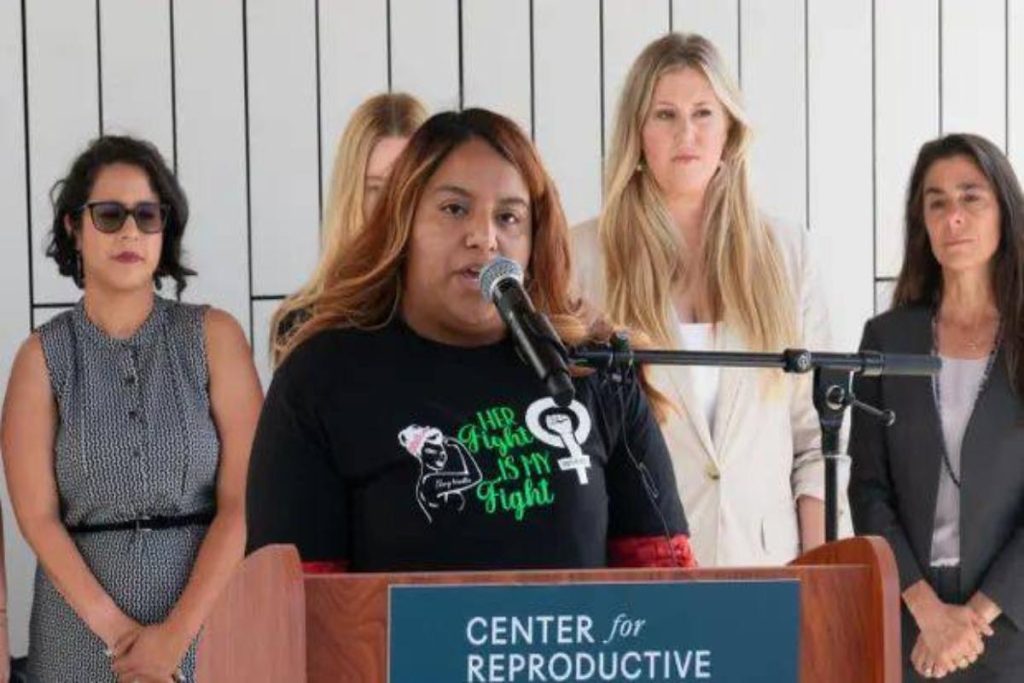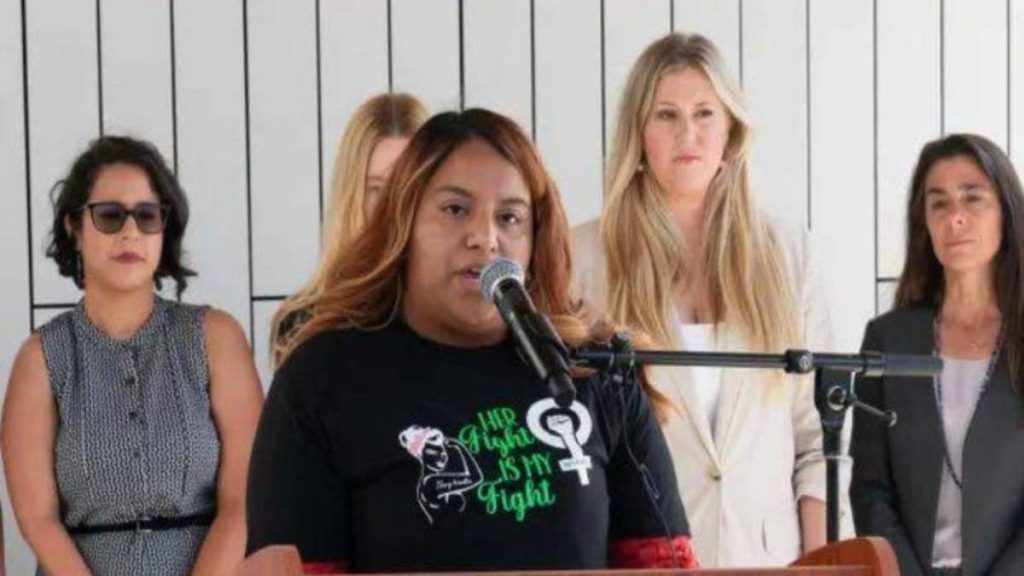A group of 20 women claims the Texas abortion ban forced them to continue their pregnancies despite severe risks. Consequently, the Texas Supreme Court scrutinized efforts to clarify exceptions to the state’s abortion ban.

The lawsuit is among the biggest challenges to abortion bans in the U.S. since the Supreme Court overturned Roe v. Wade last year. In July 2023, several Texas women gave emotional testimony about carrying babies they knew would not survive.
In addition, doctors were unable to offer abortions despite their spiraling conditions. Following the lawsuit, a judge ruled that Texas’ abortion ban was too restrictive for women with pregnancy complications.
Also Read: Controversy as House Speaker Mike Johnson Likened Abortion to Holocaust
However, the Supreme Court swiftly put the order on hold after the state appealed. Consequently, the decision now rests with Texas’ Supreme Court. During one of the hearings, a justice on the all-Republican panel signaled concerns about giving physicians the discretion to provide exceptions.
“This very well could open the door far more widely than you’re acknowledging,” Justice Jimmy Blacklock said. The Zurawski v. Texas lawsuit does not seek to repeal Texas’ abortion ban.
On the contrary, it wants to clarify when exceptions are allowed under Senate Bill 8. The S.B. 8 bill, a 2021 law that banned abortions once physicians detect embryonic cardiac activity, is one of the most restrictive in the U.S.
POLL — Is Artificial Intelligence a Net Positive or Negative for Mankind?
Under the law in Texas, doctors who perform abortions risk life in prison and fines of up to $100,000. Consequently, opponents say the ban has left some women with providers who are unwilling even to discuss terminating a pregnancy.
Among those who appeared in court were women who joined the lawsuit after physicians denied them abortions.
In addition, some of them criticized justices for questioning whether women should instead sue physicians for failing to provide care. “There was no point in suing my doctor, who was already giving me the best care our state offers. I think it falls back on the legislation,” said Kimberly Manzano, who traveled to New Mexico in May for an abortion after doctors said her baby would not survive outside the womb.
Since the women filed the lawsuit, Texas lawmakers tweaked the Texas Health Code. They give an affirmative defense to doctors who use “reasonable judgment” to treat pre-viable premature ruptures of the membrane (a kind of miscarriage) and ectopic pregnancies. Consequently, the doctors could still be charged, sued, or arrested but would have a defense in court for their actions.
Also Read: Kansas Supreme Court Strikes Down Abortion Restriction Laws
The number of plaintiffs “shows these are not isolated incidents, that this has been continuing to happen to women across Texas,” said Nicolas Kabat, an attorney at the Center for Reproductive Rights. “Only 20 of them joined our case, but not everyone who has a trauma like this is willing to come forward and participate in a lawsuit.”
Like the Texas women, women across the U.S. have continued to file lawsuits challenging abortion restrictions. Near-total abortion restrictions went into effect in Republican-led states after the Supreme Court overturned Roe v. Wade last year. However, the Texas women are the first in the U.S. to have sued a state and testified over being denied abortion following newly enacted bans.
You Might Also Like:
- How Demon Slayer: Infinity Castle Became a Blockbuster & the Biggest Anime Ever
- Global Citizen Festival 2025: Shakira & Cardi B Lead NYC’s Fusion of Music and Activism
- Tim Burton & Monica Bellucci Split After Two Years Together: A Gothic Romance Ends
- Colin Farrell & Margot Robbie Reveal Regret Over Cut Dance Scene in A Big Bold Beautiful Journey
- Afrobeats Dominates UK Charts: Rema, Ayra Starr & More Lead a Global Takeover

